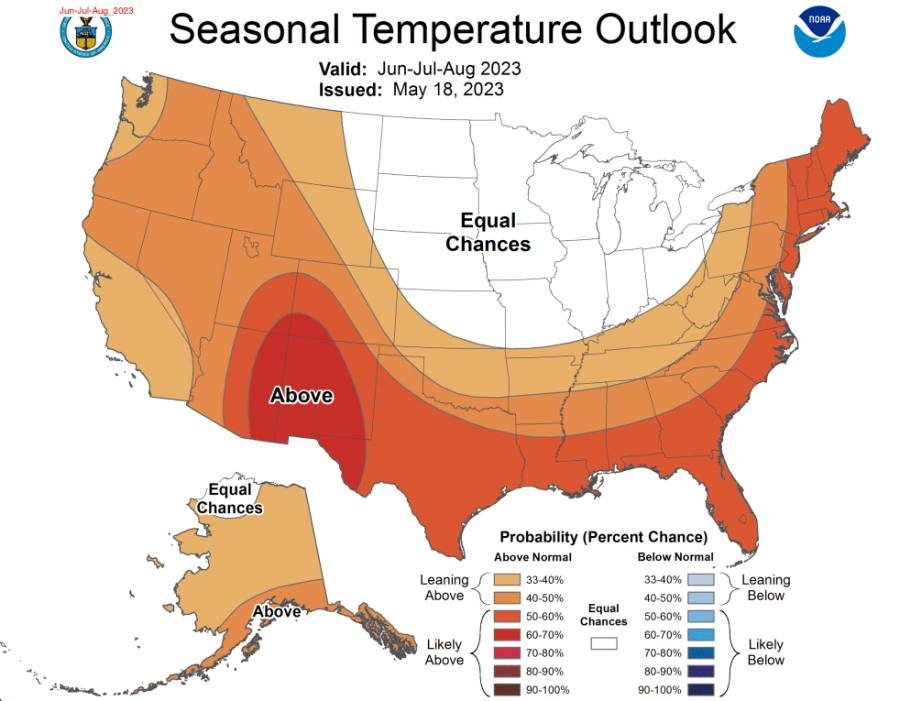El Niño could mean the hottest year on record, meteorologists warn
(NEXSTAR) – With El Niño arriving earlier in the year than usual, meteorologists are warning things could heat up even more this summer.
In the past, a strong El Niño has led to record global warmth, like in 2016 and 1998.
The reason lies within the definition of an El Niño. An El Niño is a natural, temporary and occasional warming of part of the Pacific that shifts weather patterns across the globe.
With El Niño starting before summer even officially begins, there’s a lot more heating up on the way as El Niño grows toward its usual peak in winter.
“The global oceans are very warm right now and I’m afraid that this is putting us into territory that we don’t have much experience with,” said National Weather Service meteorologist Michelle L’Heureux in an interview with Axios.
The last “super” El Niño, from 2015 to 2016, coincided with the hottest year on record.
It’s not yet clear how strong the 2023 El Niño will be. Right now, forecasters give it a 56% chance of developing into a strong El Niño, and an 84% chance of topping “moderate” strength.
“The onset of El Niño has implications for placing 2023 in the running for warmest year on record when combined with climate-warming background,” said University of Georgia meteorology professor Marshall Shepherd.
The summer outlook released last month by the National Oceanic and Atmospheric Administration (NOAA) matches up with predictions for a hot year. The map shows nearly the entire country with 33% to 70% chances of above-average temperatures between June and August.
The highest chances for a hot summer are in the southwestern U.S., where monsoon season is poised to begin this week.

Usually, an El Niño mutes hurricane activity in the Atlantic, giving relief to coastal areas in states from Texas to New England, Central America and the Caribbean, weary from recent record busy years. But this time, forecasters don’t see that happening, because of record hot Atlantic temperatures that would counteract the El Nino winds that normally decapitate many storms.
Hurricanes strengthen and grow when they travel over warm seawater, and the tropical regions of the Atlantic Ocean are “exceptionally warm,” said Kristopher Karnauskas, associate professor at the University of Colorado Boulder. So this year, NOAA and others are predicting a near-average Atlantic hurricane season.
The Associated Press contributed to this report.
Copyright 2023 Nexstar Media Inc. All rights reserved. This material may not be published, broadcast, rewritten, or redistributed.

